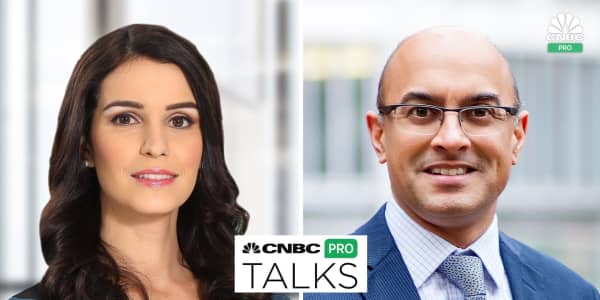The Netflix series "Marco Polo" was considered, by most critical accounts, to be an ambitious flop. But it appears there was good reason for Netflix to produce the series on the first Westerner to explore China, and order up another season of it.
Like Polo, Netflix CEO Reed Hastings is planning to explore the Chinese market, as early as next year. Success in China might be required for the streaming media company to justify its lofty, and rising, stock price.
After a quarterly earnings report that sent its stock on yet another surge, Hastings set the stage for the company's next big push, being available worldwide by next year, including the 1.4 billion-person Chinese market.
Netflix shares rose by as much as 16 percent on Thursday after the company beat Wall Street forecasts for second-quarter profits by two cents a share and, more importantly, beat forecasts for subscriber additions by almost half. Netflix added 3.3 million customers for its streaming video service to top 65 million total. The company added 1.7 million customers in 2014's second quarter. The new clientele included 900,000 customers in the more-mature U.S. market and bolstered Hastings' long-standing forecast that Netflix can keep adding 5 million to 6 million U.S. clients annually.
"We'll be solidly in that range," Hastings said in a post-earnings interview with RBC Capital analyst Mark Mahaney and Rich Greenfield of BTIG Research.
Yet stable growth in the U.S. market won't be enough, and Netflix's growth has come at a price.
Read MoreHow to tell if a CEO is lying about earnings
While it earned $26.3 million in net income during the quarter, or 6 cents a share, on revenue of $1.64 billion, free cash flow was a negative $229.3 million, pushed down by investment in programming, led by original series productions, such as "Orange Is the New Black" and "Frankie and Grace," which helped drive new-subscription sales. The company said in its letter to shareholders "as our global content spend approaches $5 billion in 2016 on a P&L basis (over $6 billion cash), we will devote more investment to originals both in absolute dollars and percentage."
"Netflix valuation is dependent on growth at any cost, and management is doing exactly what I expected of them," longtime bear Michael Pachter of Wedbush Securities said.
The bet on Netflix is one that says the company's investment in content will drive long-term profitability, Mahaney says. And it's a strategy Pachter said will eventually cave in.
"We hope to open the entire rest of the world in 2016," Hastings said after the company announced better-than-expected second-quarter profits yesterday. The company operated in more than 50 nations today. "So [in] China, we still have some things to figure out, so I suppose that's possible. But in the rest of the world, we're pretty confident that we'll open. And then we'll have to see how successful we are in Poland. We have to see how successful we are in Indonesia."
Exporting gross margin growth
Netflix can boost its per-share earnings to as much as $9 a share as the number of subscribers jumps from today's 65 million, Mahaney argued in a note to clients. He said rising gross margins in Netflix's U.S. business suggest that the content costs company-wide will be manageable as the business grows. "The acceleration in subscriber adds suggests we're only in the fourth or fifth inning," Mahaney wrote. "Margins still have substantial room to move upwards."
The company said it makes 30 percent profit margins in the U.S. and expects to boost that to 40 percent by 2020 and is running ahead of its shorter-term domestic profit targets.
Read MoreWhat's driving the Netflix stock surge? Not the US
Netflix bulls like Mahaney and Greenfield think the shares can go to $125 or $135. Mahaney's $125 estimate is based on 40 times 2016 profits from domestic online streaming and eight times the sales of Netflix's still-unprofitable international unit, which has 19.3 million paying subscribers and lost $15.3 million during the quarter.
Greenfield last month raised his Netflix price target to $950, or $136 adjusted for a 7-1 stock split on July 14. His price is based on 30 times domestic profits from 2017, minus 15 percent, and an assumption that the international business will eventually reflect U.S. profit margins.
We hope to open the entire rest of the world in 2016. So [in] China, we still have some things to figure out.Reed HastingsNetflix CEO
"When the stock was half this price, I described it as euphoric,'' he said. "So it's a mystery to me."
The Netflix CEO is not the only one perplexed by the stock valuation.
Pachter of Wedbush thinks Netflix will get less profitable as it grows, as investments in "Netflix Originals" content continues unabated and makers of the TV programs and movies Netflix does not make itself demand a larger share of the revenue they help generate. This will more than offset the price increases Netflix is likely to be able to get in the future, he said. He has a $40 price target.
"We are skeptical that Netflix's 'originals' strategy will achieve critical mass sufficient to drive meaningful profitability over the next several years," Pachter said in a note Thursday. "We also expect meaningful competition in 2016 and beyond, resulting in slowing subscriber growth."
Netflix said it expects to run close to break-even through 2016 and "to then deliver material profitability in 2017 and beyond."
Read MoreCramer: Netflix earnings 'took my breath away'
Bulls counter by arguing that Netflix has been able to hold its share of the streaming-media market even as it expands globally, attracting competition from everyone from Amazon to Time Warner's HBO Go Web service, with Apple widely expected to make a bigger move into video than it has made to date.
"Everyone is maintaining their relative share, but the total amount of Internet viewing is growing at a very vigorous rate," Hastings said. "We don't take it for granted. Those kinds of numbers can switch at any time."
One key for Netflix is whether it can learn to make profitable original programming faster than traditional premium-TV leader HBO by learning more about technology and directly marketing to subscribers, Netflix chief content officer Ted Sarandos said.
Another is whether international consumers continue to show the taste for U.S-made content that Netflix CFO David Wells said is bolstering margins by containing the need for content tailored to each country. In other words, the model works best if China wants to watch American dianying, or movies.
—By Tim Mullaney, special to CNBC.com




